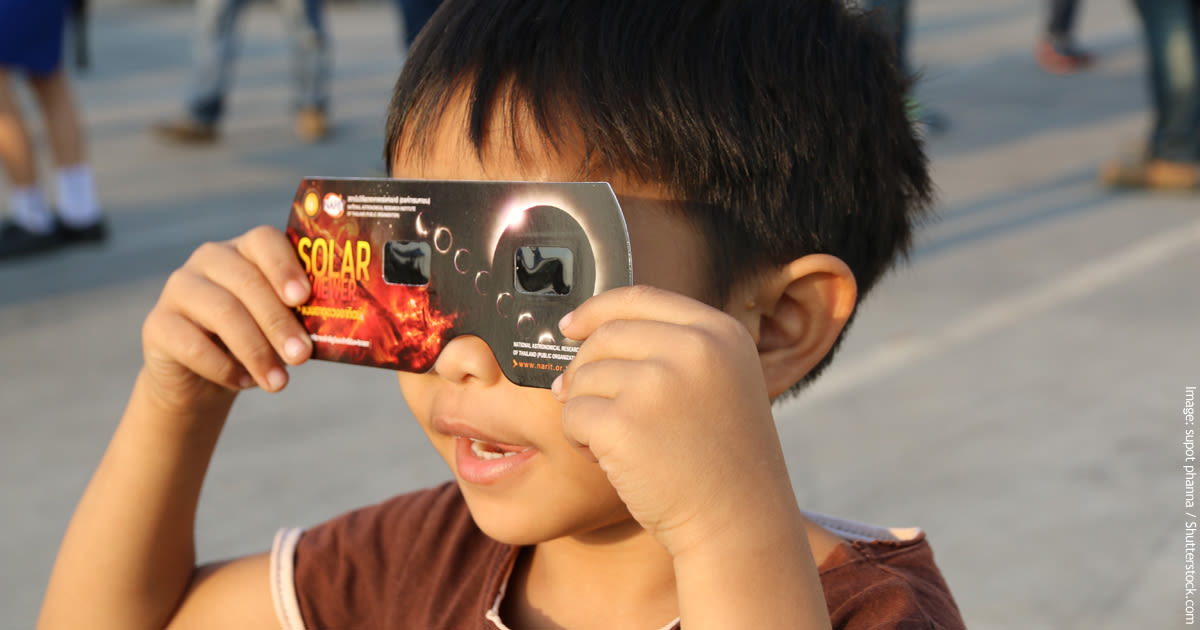Solar eclipse and your eyes: How to view an eclipse safely

Whether you choose to view a solar eclipse from your home, a hotel or an open field along roadway, you need to know how to watch a solar eclipse without damaging your eyes.
We've got you covered.
Solar eclipse definition
What causes a solar eclipse?
By definition, a solar eclipse occurs when the moon passes directly (or nearly directly) between the sun and earth, causing the moon to block most of the sun (partial eclipse) or fully block it (total eclipse) for a brief period.
Solar eclipse glasses: The best way to protect your eyes
Solar eclipse glasses are inexpensive, very dark filters with cardboard or paper frames that are designed to protect your eyes from retina damage when viewing an eclipse.
Staring at a solar eclipse (or staring at the sun at any time) can cause a burned retina — called solar retinopathy or solar maculopathy — that can cause permanent vision loss. So having adequate eye protection when viewing a solar eclipse is extremely important.
Certified "eclipse glasses" offer adequate protection from the sun's potentially damaging UV rays when viewing a solar eclipse. Look for documentation somewhere on the disposable glasses that says the eclipse shades are certified to meet the ISO 12312-2 international standard for safe direct viewing of the sun.
Tips to view a solar eclipse safely
Once you have your solar eclipse glasses (and before you look at the sun), the National Science Foundation's American Astronomical Society (AAS) offers this list of solar-eclipse viewing safety tips:
Always inspect your solar filter before use. If it's scratched, punctured, torn or otherwise damaged, discard your eclipse glasses.
Always supervise children using solar filters.
If you normally wear glasses, keep them on. Put your solar eclipse glasses on over them, or hold a handheld solar viewer in front of them.
And AAS provides these solar eclipse viewing tips for photographers:
Don't look directly at the sun (or partially eclipsed sun) through an unfiltered camera, telescope, binoculars or other device.
Similarly, don't look at the sun through a camera, telescope, binoculars or any other optical device — even while wearing eclipse glasses. The concentrated solar rays passing through the lens(es) of the optical device could damage the filter of the eclipse glasses and enter your eyes, causing serious injury.
Seek expert advice from an astronomer before using a solar filter with a camera, telescope, binoculars or any other device. Note that solar filters must be attached to the front of any telescope binoculars, camera lens or other optics.
FIND AN OPTICIAN: if you're concerned about your vision, visit an optician near you.
Page published on Wednesday, 16 March 2022






